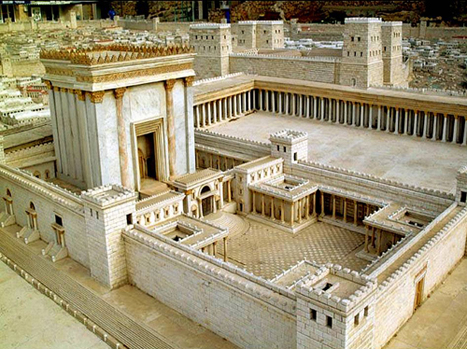Some of the translation errors in the KJV are actually a bit baffling. This particular translation error is one of those. It appears like the translators purposefully mistranslated the Greek word “ἱερόσυλος“. Here are the various translations.
For ye haue brought hither these men, which are neither robbers of Churches, nor yet blasphemers of your goddess: (Acts 19:37 KJV 1611)
For ye have brought hither these men, which are neither robbers of churches, nor yet blasphemers of your goddess. (Acts 19:37 KJV)
You have brought these men here, though they have neither robbed temples nor blasphemed our goddess. (Acts 19:37 NIV)
Now let us address the issue with how the KJV translated “ἱερόσυλος” into “churches“.
Definition of ἱερόσυλος
The word ἱερόσυλος is actually two words combined. The two roots are ιερος(sacred) & συλαω(rob/sac). The combination is a robber of holy things, but the idiomatic use at that time was of temple robbing. This would be a good time to point out that the word for temple is very close to ιερος as it is ἱερόν. Without getting into a lengthy discussion of the etymology of this word, just know that it can be either a temple robbery or a robbery of sacred things depending on the conjugation of the words and the context it’s used in. In the Bible it’s always temple robbery as I will now demonstrate.
Context
The passage where this is found is in Acts 19 where Paul and some companions were preaching and performing great miracles in Ephesus. Some prominent men in the town caused and riot against them and then drug them into a public hearing to discuss their disruption of the city. After some time, the

town clerk stood up and made a case in favor of releasing them. The two reasons he gives is that they were not temple robbers and they had not blasphemed their local goddess.
So, right away we see that the words are being uttered by a man from Ephesus who was part of the dominant local religion which made use of temples. In fact, the one in question would have been the temple of Artemis, which is quite prominent.
Why not church?
It is also worth noting that the Ephesian local religion did not meet in churches or even in regular assemblies. Thus, there is no reason to use the word church in place of temple. Furthermore, what would be robbed from a church? Churches were localized meetings at people’s houses and sometimes at one of the local synagogues. However, temples were full of gold and other extravagant sacred objects. They often held the temple taxes in a treasury as well. Temple robbing would have been a lucrative gig. Church robbing would just be silly.
Additionally, Greek already had a word for church and it was “Εκκλησία“. To be clear, though, εκκλησία usually refers to an assembly of people. In the Greek translation of the OT, call the Septuagint, εκκλησία is used universally to describe the gathering of Israel or even other groups of people. It does NOT refer to a building of any nature. There is no relation between εκκλησία and ἱερόν.
This can clearly be seen just 4 verses later when the word εκκλησία appears and it is translated as assembly. “After saying this he dismissed the assembly.” This is the same εκκλησία that is translated into the word “church” and it does not appear at all in verse 37. But the root word for temple does.
Summary
Even if there was any linguistic ambiguity (and there is not), there would be nothing contextual to hold it together. The non-Christian Ephesians simply did not practice a religion that would have made a similar use of the word “church” as the Christians did.
Why would the KJV translators do such a thing? Well, it is hard to know what was going through the minds of the translators. There is no translation notes in my 1611 facsimile. Usually, the 1611 will have notes for hard-t0-translate words or phrases. It’s entirely possible that they just had a different understanding of how the words were used. It’s also possible that someone just plain goofed up.
It is also possible that church robbing or even relic robbing was a major issue (which is was) so it was too easy to link temple robbery to church robbery in order to make the text more understandable or to make a point. Though, I am sure that the readers of the Bible understood the word temple just fine. No further smoothing was needed.
Once again, this is why modern translations use the correct word “temple” and not “church”. To be fair to the KJV, though…… They copied almost 80% of their work from the Geneva Bible and the Tyndale Bible. Both of which used the word church instead of temple. But wether it’s copying an existing error or making the error yourself…. an error is an error.

It does not matter really in the end. A person can have a particular translation memorized but still do no good. There is enough in them to reveal that only when a person seeks the way the truth and the life with all the heart will God then open their eyes to the salvation message. They may not know exactly what they are looking for but they know it is somewhere and want it above all else. The Road to Emmaus should be the only example needed to prove this concept that God reveals it to us, although there are many more. God chooses us we do not choose God. There is enough in any translation for God to “speak” to us. Rare language translations is an example of how the Spirit trumps detailed accuracy. It is beneficial to know the difficulties in various translations
Agreed 100%